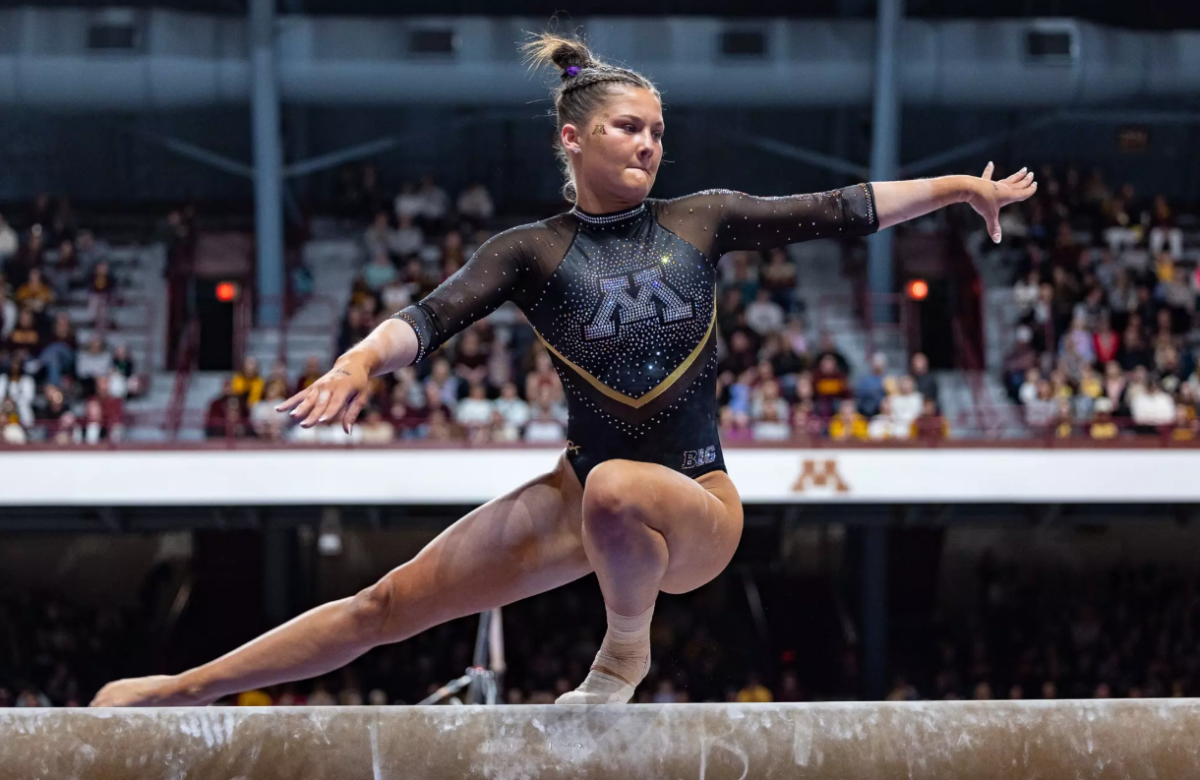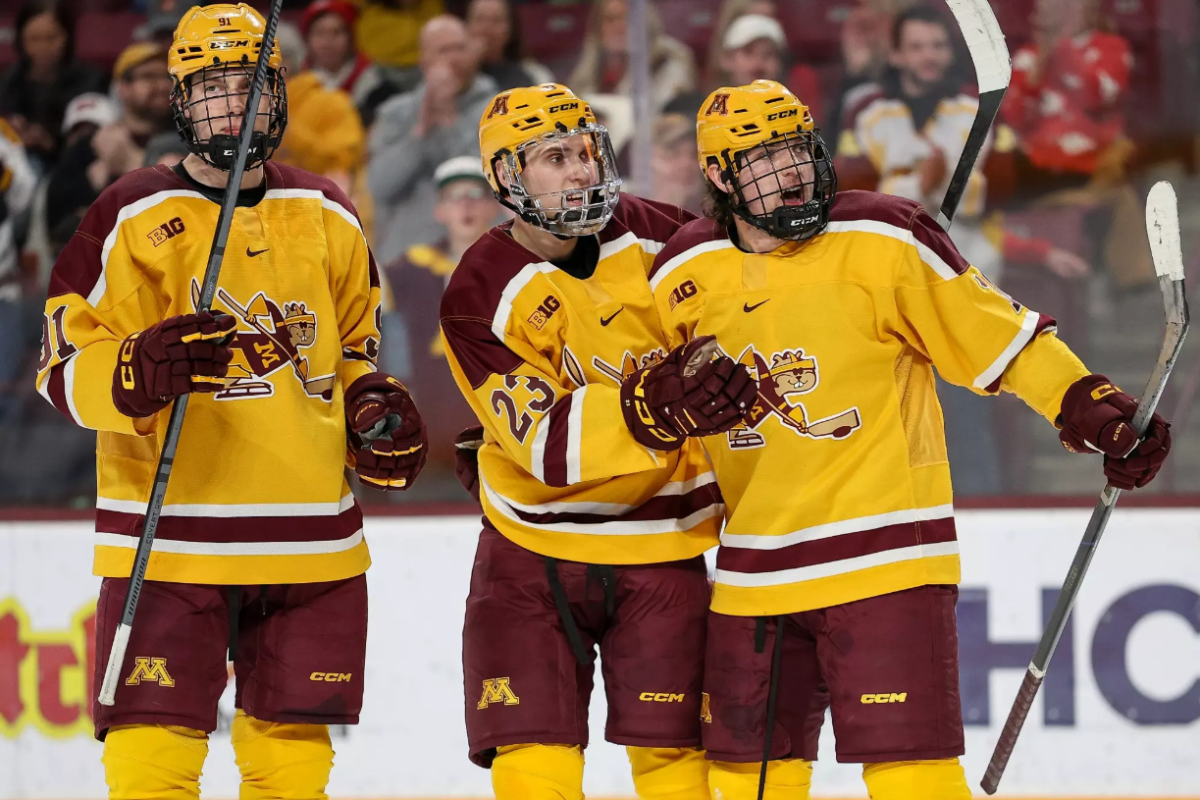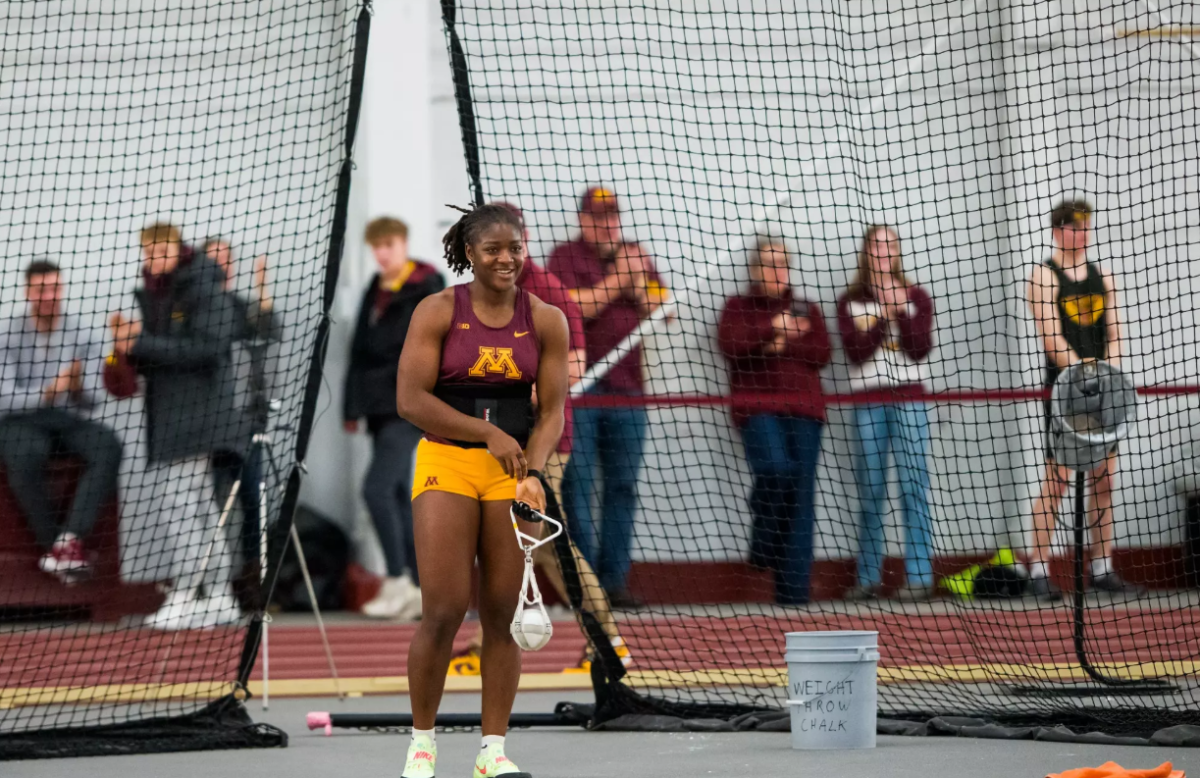Minnesota’s Bierman Athletic Center is the epicenter of Gophers athletes’ nutrition.
Year-round, student-athletes can visit the cafeteria for their lunches and dinners. It offers a wide range of food, including chicken options, salads and make-your-own smoothies.
University of Minnesota’s head nutritionist Tommy Jensen offered some insight on how athletes at Minnesota are fueled.
“I think it’s incredibly important,” Jensen said. “It is only growing in importance and the understanding of it — I mean the fact that we’re sitting in a facility that provides great nutrition to our athletes speaks to that.”
Every athlete is different and Jensen attributes a lot of that to their early development. Jensen said eating plans are decided by the athlete and their relationship with certain foods.
Jensen added that every athlete needs the three macronutrients: carbohydrates, protein and fats. Healthline defines macronutrients as the nutrients your body needs in large amounts to function because the body cannot make enough by itself.
The key difference in an athlete’s eating habits is the amount. Jensen gave the example of a 180-pound running back needing to eat a lower amount of macronutrients than a 350-pound offensive lineman.
Players also take into account the timing of meals and the end goal of their diet plan. Additionally, they are tasked to switch from offseason to in-season plans, or vice versa, to accommodate their energy output, Jensen said.
During the season, Jensen tries to keep things similar. A pregame meal is something familiar that is “easy to digest,” while a post-game meal focuses on calories and is made to taste well so the athlete wants to eat it.
Minneapolis/St. Paul-based athletic chef Ryan Hoffman spoke about what an athlete’s meal before and after workouts may look like.
“Oatmeal with some nuts and some berries,” Hoffman said. “Afterwards, they might have a protein shake and then roasted sweet potatoes and a chicken dish or a grilled steak with a salad on the side.”
Men’s basketball head coach Ben Johnson said nutrition is important and helps keep his players ready and energized throughout the season.
“We have a nutritionist that helps with that,” Johnson said. “I have been trying to be as diligent as possible from the summer to the minute they get here with making sure guys have a plan … I try to make it a part of our program like we do with academics, like we do with strength and conditioning.”
Johnson added that as his players’ energy outputs increase in the weight room and on the court, the last thing he wants is for his players to “taper off or lose weight or lose strength.”
Athletic programs also have a space to practice their cooking skills at Bierman through Schwan’s Teaching Kitchen. Athletes spend their time in the kitchen bonding with teammates while prepping team meals together, according to Jensen.
“We did ceviche with the women’s basketball team, which was a fun thing to make for them, and interviewed some of the athletes about something they haven’t had before,” Jensen said.
Jensen added that the role sleep plays is significant to an athlete’s nutrition.
Without a good sleep schedule, an athlete’s nutrition plan may be much less effective. Even though every athlete has a different body, macronutrients and good sleep are vital for an athlete to stay fueled throughout the whole season, Jensen said.
“If you’re not doing those things you can spend all your time and money on specific supplements and a specific diet,” Jensen said. “At the end of the day, it’s not going to do the most because you’re not sleeping the 8-10 hours you should get as an athlete.”








